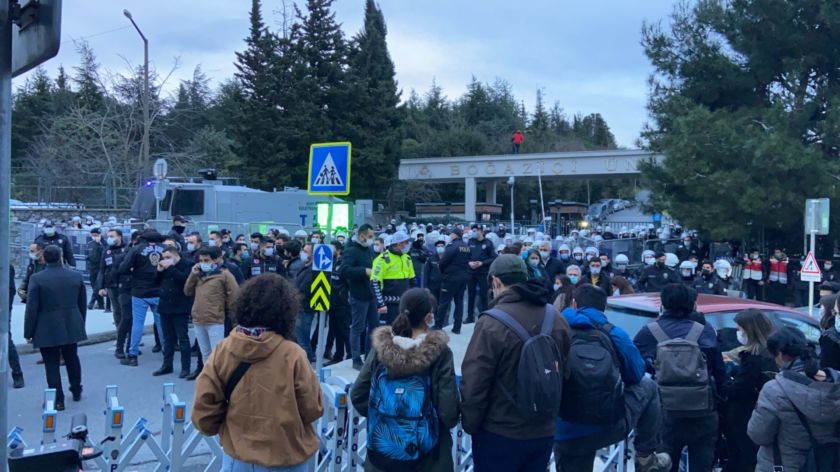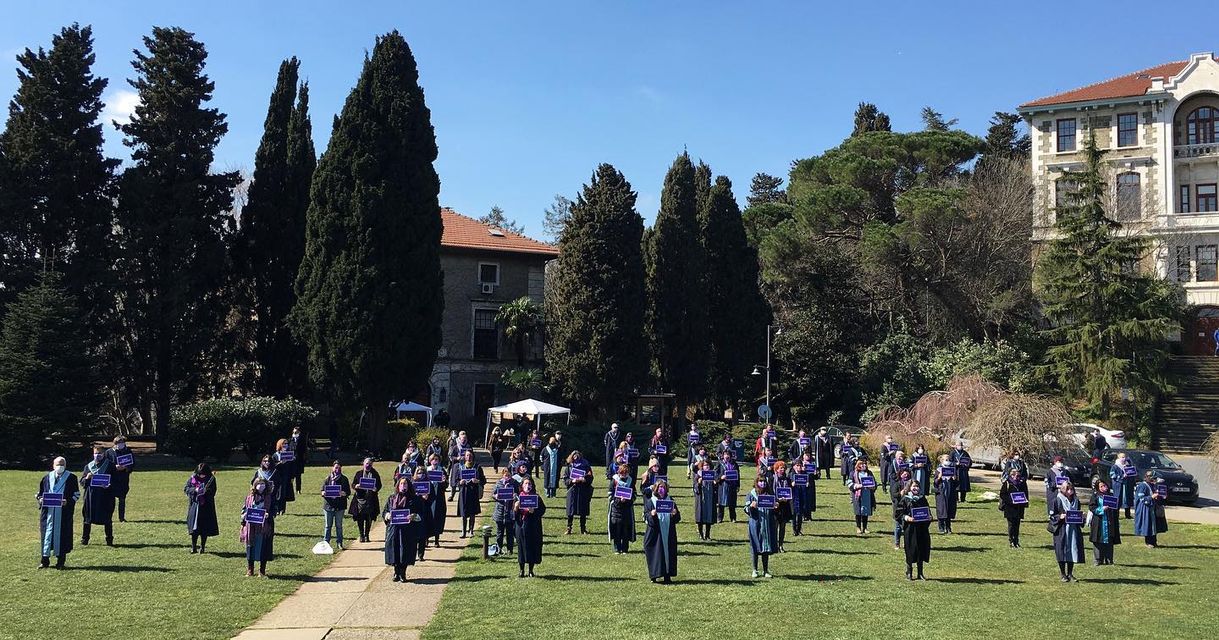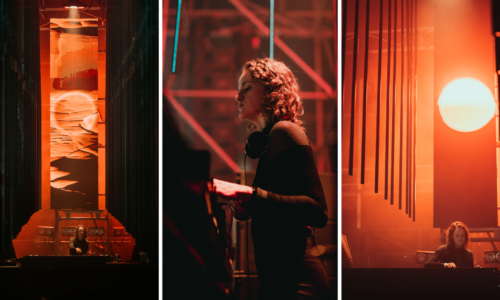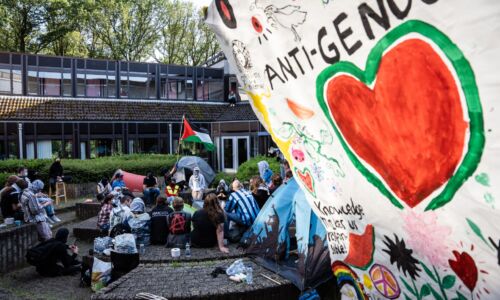Turkish researchers in Nijmegen concerned about Boğaziçi University
-
 Via Wikimedia Commons
Via Wikimedia Commons
For nine weeks, students and professors from Boğaziçi University in Istanbul have been protesting against their new rector, appointed by President Erdoğan. Two Nijmegen researchers who studied at the prestigious Turkish university watch the events with great concern: ‘Independent scholarship is at stake.’
For weeks, professors have been standing with their backs to the Rectorate Building of Boğaziçi University in Istanbul every single day, regardless of the weather. Students also take to the streets every day. They refuse to cooperate with their new rector, who was appointed by Turkish President Recep Tayyip Erdoğan.
On New Year’s Day, just after midnight, all staff and students received an email with the announcement that Melih Bulu is the new rector of their university. The appointment of Bulu, a former rector of a low ranked private university and associated with Erdogan’s AK party, appears to be based on his political affiliations rather than his academic merits.
New departments
‘This person does not have the right qualifications to lead a university,’ said a Turkish researcher from Radboud University who studied at Boğaziçi University. Due to the tense situation in the Turkish community, this employee would prefer not to have their name published. ‘Almost all professors and lecturers at Boğaziçi obtained their PhD from highly regarded foreign universities such as Stanford or Berkeley. Bulu, who obtained his PhD in Business Management, received his degree at Boğaziçi. He would normally never qualify for this position, because the university does not accept its PHD recipients to be a professor, in order to avoid academic inbreeding.’
‘Bulu’s academic merits are not suitable for Boğaziçi,’ said a second Turkish researcher from Radboud University, who studied and worked at Boğaziçi University and also wishes to remain anonymous. ‘His publication list is unimpressive and he was discredited for plagiarism in his dissertation.’
‘The academic merits of the rector are not suitable for Boğaziçi’
Since taking office, Bulu has been looking for a vice-rector, but no academic wanted to work with him within the University. So the rector ended up opening two new departments, in Law and in Communication Sciences. Three new vicerectors have been appointed.
Empirical evidence
The appointment of the new rector comes as no surprise. The grip of the Turkish government on universities financed with public money (see frame, ed.) has become increasingly stronger in recent years, certainly since the failed coup in 2016. ‘The government is systematically cutting back on the university’s finances,’ says the first researcher. ‘Academic freedom is also gradually declining. If this situation continues, my friends there will have to make way for other researchers from new departments.’
Particularly the culture at Boğaziçi University, where everyone can express an opinion, is a thorn in the side of the Turkish president. ‘Students and employees can have opinions that differ from those of the government,’ said the second researcher. ‘They are confident enough to express that opinion and back it up with historical or empirical arguments – all of which Erdogan dislikes.’
No loudspeakers
The Turkish researchers in Nijmegen follow the protests via social media such as Twitter, Instagram and WhatsApp. ‘People in Turkey who only watch television or read newspapers only hear the story of the government,’ said the second researcher. ‘The Turkish television channels, which are owned by Erdogan, are calling students terrorists, and even newspapers are spreading fake news about the protests.’
The professors still stand in front of the Rectorate Building every day, even when it is raining or cold, says our first respondent. ‘Their protest is not without risk, because the government pays their salary. And yet they continue, sometimes in an inventive way. The use of loudspeakers is prohibited, so they make their speeches in loud voices. They just don’t want to work with the new rector.’
Students who protest also put a lot at risk. Four weeks ago, 31 students were arrested, and the rainbow flags of LBGTQ protesters were seized. ‘The students have been released again, but it almost spelt the end of the protest,’ said our second respondent. After all, those who are arrested could end up in jail or be given a criminal record, which would allow the government to refuse them documents or other favours in the future. ‘That’s why parents ask their children not to protest.’
Citizens of the world
The students continue to protest, however, and there is a reason for that: of the two million Turkish students who take university entrance exams every year, only the top thousand are welcome at Boğaziçi. ‘All the students worked hard for twenty years to get to where they are today,’ says researcher one. ‘They and their families have invested heavily in this, which is why they are so angry: all their efforts are in danger of dissolving, and the curriculum of students can change from one day to the next. They aren’t going to just stop protesting.’
The two alumni especially praise the university’s openness. ‘Academic integrity and freedom are sacred to Boğaziçi,’ said researcher two. ‘All opinions and cultures are welcome. Students wearing a headscarf have always been welcomed with open arms at Boğaziçi, even though it was against the law.’
So students and staff of the university that was founded in 1863 under the name Robert College as the first American institution of higher education outside the United States, are protesting. In 1971 the university was taken over by the Turkish government. Almost all professors and researchers have obtained their PhD from prestigious foreign institutes. The university has a very good reputation and is always in the top 200 in international rankings.
During the first two years of their studies, all students receive a general education in disciplines such as philosophy and history. Only then do they specialize in a profession. According to the second researcher, studying at Boğaziçi can fundamentally change people. ‘I had fellow students from poor rural areas who became real citizens of the world through their studies at Boğaziçi. I fear that this will not be possible in the future.’
Due to Erdogan’s interference, good public universities are in danger of disappearing from Turkey in the future, the first researcher fears. ‘There are still a few good private universities left, but you have to be very rich to study there. Friends of my generation with enough money send their daughters and sons to the US to do a bachelor’s degree. That is bad for the future of the country: which smart people will stay behind in Turkey to tackle problems such as climate change? The European relationship with Turkey will also suffer.’
Pessimistic
What will happen at the university on the Bosporus in the near future is anyone’s guess, but the Turkish researchers in Nijmegen are not optimistic. They fear that the current academic staff will be replaced by scientists who support the government, which will decrease the quality of teaching and research.
The Turkish researchers know one thing for sure: Erdogan will not give up. ‘He has already closed NGOs and appointed mayors. Protests at a relatively small university do not frighten him. Above all, I hope he will not use force to nip the protests in the bud,’ says researcher one.
‘The president can still retrace his steps,’ hypothesises the second researcher. ‘But he would only do so if there were major consequences for the economy; for example if major European countries or the United States were to impose sanctions on the Turkish government if it does not leave the university alone. But I’m afraid that won’t happen.’
Independent scholarship
The situation at Boğaziçi is not an isolated one, the researchers warn. ‘I also never thought this would happen in Turkey when I was studying there at the time,’ said the first researcher. ‘When you look at the number of people who believe in fake news and conspiracy theories, I sometimes get the impression that scholarship is being repressed. Former United States President Donald Trump, for whom half of Americans voted, threatened to take money from universities for left-wing indoctrination.’
‘This could also happen in the Netherlands’
Could a situation like in Turkey also happen in Europe? Of course, says the first researcher. ‘In fact, it has already happened here. Just look at the Central European University (the university founded by philanthropist George Soros had to partly move to Vienna because the Hungarian government was not allowing them to issue certain degrees, ed.). We have to be careful that universities don’t disappear, leaving a mere hundred universities worldwide that think that science is the right way. This could also happen in the Netherlands.’
The radio silence from Dutch universities about the situation at Boğaziçi frustrates the Turkish researchers. ‘Why isn’t KNAW making a statement?’ The first researcher wonders. ‘They could say they support scholars no matter where they are in the world – this is about the future of independent scholarship.’
The names of the researchers are known to the editors.




